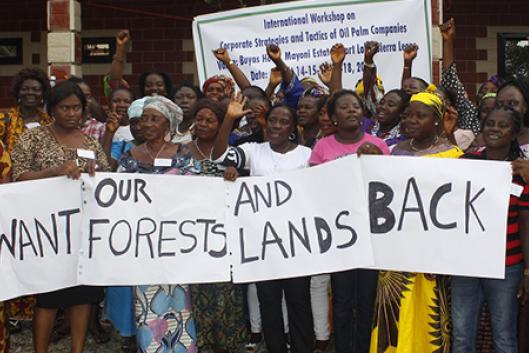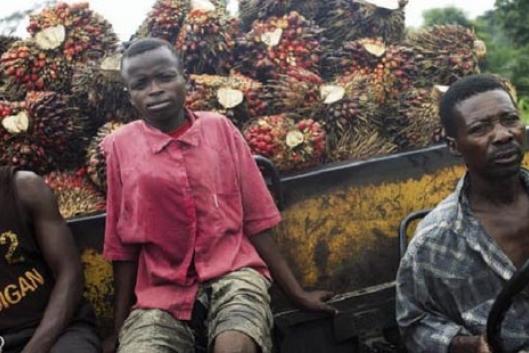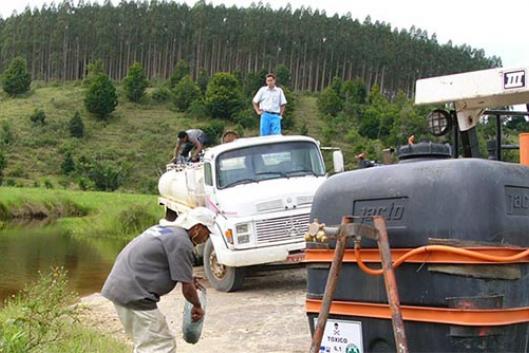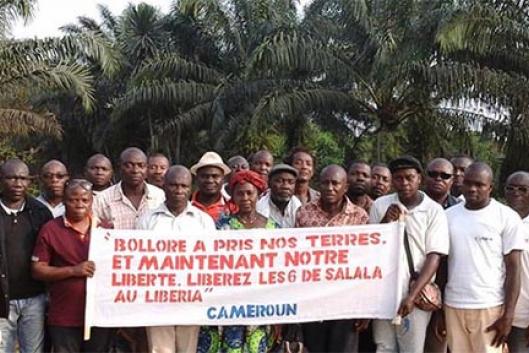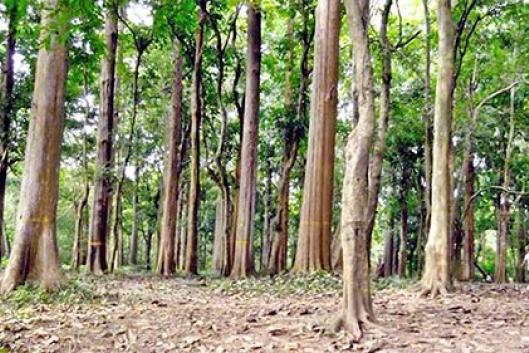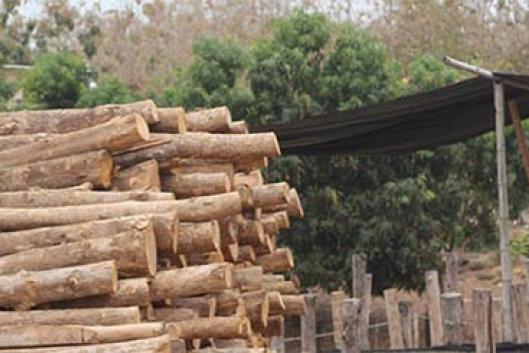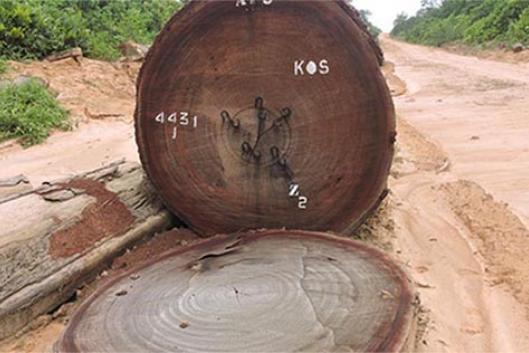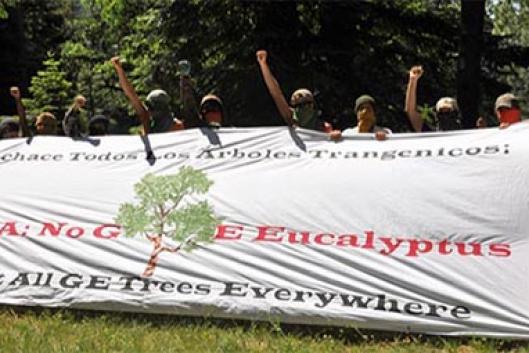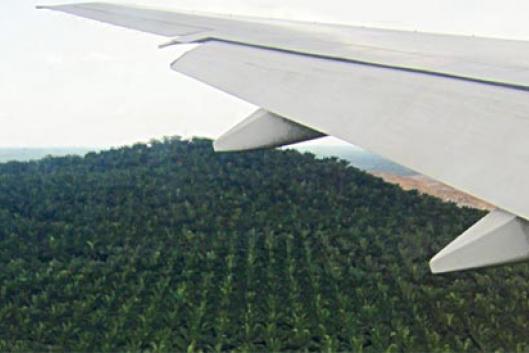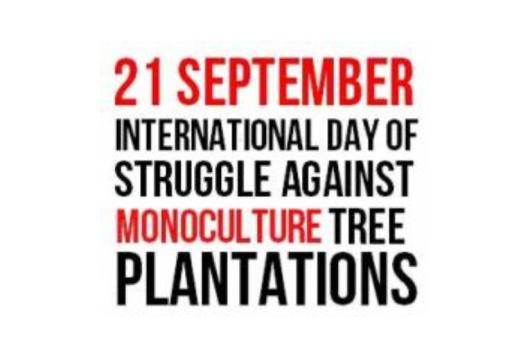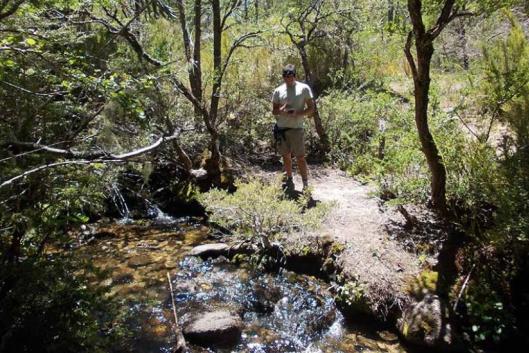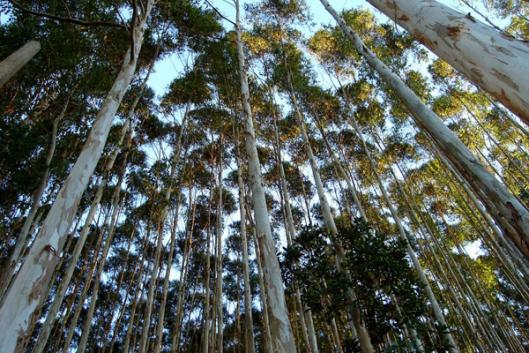Large-scale monoculture plantations “rob women of everything they have as they take the agricultural lands and forests that women depend upon for their livelihoods and for feeding their families”. This is part of the final declaration of a workshop organized in Port Loko, Sierra Leona, in August 2017, which brought together women from Sierra Leona’s Northern, Southern and Eastern regions, together with representatives from Cameroon, Liberia and Guinee. (1)
Bulletin Issue 233 – September 2017
Struggles for land, forests and life: No to industrial tree monocultures!
WRM Bulletin
233
September 2017
OUR VIEWPOINT
STRUGGLES FOR LAND, FORESTS AND LIFE: NO TO INDUSTRIAL TREE MONOCULTURES!
-
21 September 2017Oil palm plantations managed by the Canadian-based agribusiness company FERONIA Inc have been opposed by local residents ever since they were established by the previous owner of the plantations, multinational food company Unilever. Incidents of violent abuse and conflict arising from the company’s oil palm plantations in the Democratic Republic of the Congo (DRC) have been a regular occurrence. In 2015, seven children were left orphaned after police killed both indigenous pygmy parents for taking some oil palm fruits from the plantations to feed their children.
-
21 September 2017The process of territorial transformation in the southernmost part of Bahia is closely intertwined with agriculture in Brazil, and is based on an extremely unequal territorial structure that has been in place since colonial times. But this has recently been exacerbated by the imposition of a single model of extensive and intensive production, using land, water, agrochemicals, chemical inputs, large machinery and biotechnology. This is agribusiness in general, and in particular, the eucalyptus plantations that supply huge pulp mills. Eucalyptus, agrochemicals and ideological manipulation
-
21 September 2017Photo: SOCFIN In 2016, the multinational agro-industrial SOCFIN Group - controlled by the Belgian Fabri family (50.2 per cent of the shares) and the French Bolloré group (39 per cent of the shares) -, announced its so-called “responsible management” policy. (1) This policy refers to strict environmental standards, respect for human rights, transparency, the Roundtable on Sustainable Palm Oil (RSPO) certification, good management, among many others. But these are hollow words when they do not represent transparent, responsible and respectful practices towards the communities living in and around the plantation areas, which experience daily the real behaviour of the company.
-
-
21 September 2017Teak plantations in Ecuador are not intended for domestic consumption. All of the teak is exported. There are very few economic benefits for the areas where teak is produced, due to the small amount of labour it requires, producers' non-existent social investment, and the loss of food sovereignty and water scarcity that this industry causes.
-
21 September 2017For over 20 year now, certification schemes such as the Forest Stewardship Council (FSC) and the Roundtable on Sustainable Palm Oil (RSPO) (1) have helped plantation companies secure their profits and protect their reputation. How do they do that, when the impacts of large-scale industrial eucalyptus, pine, acacia and oil palm plantations are so obvious for all to see?
-
21 September 2017In 2013, Wah Seong Berhad, a Malaysian company with no prior experience on palm oil, announced its decision to invest US 744 million dollars over a ten-year period to establish an industrial complex and an oil palm plantation covering an area of 180 thousand hectares in the departments of Sangha and Cuvette, some 800 kilometers north of Brazzaville, the capital of the Republic of Congo. ATAMA Plantations, a subsidiary of the Malaysian company, obtained from the Ministry of land affairs and public domain of Congo the authorization to occupy 470 thousand hectares to develop oil palm plantations. The 180 thousand hectares located in Sangha are part of this concession.
-
21 September 2017Photo: STOP GE Trees Campaign
-
21 September 2017From 11th to 13th October, Mexico City will be hosting a High-Level “Conference on Aviation and Alternative Fuels” convened by the International Civil Aviation Organisation (ICAO). ICAO is a specialised UN organisation with a long record of representing the interests of the aviation industry, i.e. airlines and aircraft manufacturers. Ahead of the conference, ICAO’s Secretariat has published a proposed “Vision” which would see enormous amounts of agrofuels burned in planes in the future: 128 million tonnes a year by 2040 and 285 million tonnes by 2050 [1]. By comparison, around 82 million tonnes of agrofuels were used in total during 2016 [2].
-
21 September 2017Photo: Ecos Córdoba. Located in the central region of Argentina, Cordoba is one of the five largest provinces in the country. Between 1904 and 2004, it lost 95 percent of its native forest, mainly as a result of the expansion of large-scale agriculture. Its annual deforestation rates are among the highest in the world, bringing serious consequences for the environment, health and food sovereignty of the population, according to researchers at the National University of Cordoba (1).
RECOMMENDED
-
21 September 2017On 21st of September organisations and individuals around the world give visibility to the countless struggles against the expansion of large-scale monoculture tree plantations. Eucalyptus, pine, acacia, rubber, teak, oil palm and other types of industrial plantations cause disastrous impacts. This day also underlines the damaging impacts of this monoculture production model.
-
21 September 2017An international team of researchers published a study in the journal, Ecology and Evolution, which highlights the complex impacts of introducing an exotic species. This case showed that Eucalyptus has lethal and sublethal effects on the larvae of aquatic insects, which in turn affects various organisms that inhabit fluvial ecosystems with eucalyptus plantations on their banks. The study explains how the larvae affected by eucalyptus are mainly found in rivers, as they prevail in environments that have had less external intervention (small headwater rivers). In these environments, in addition to being food for native fish, they break up the leaves that fall from the forest, which is a key process in the functioning of these ecosystems.
-
21 September 2017Large-scale planting of eucalyptus and acacia trees under a World Bank-aided project in India not only squeezed the rich underground water table in the districts of Bengaluru Rural, Kolar and Chikkaballapur, but also affected annual rainfall in the region. Assessing research papers and observations by forest officials, agriculture and geology researchers belonging to various organisations, an expert committee headed by the Minister for Forests, Ecology and Environment learned that the tree plantations were responsible for the recent parched condition of these districts. As a consequence, the government has banned planting of eucalyptus and acacia plantations in Karnataka since February 2017. Read the article here:
-
21 September 2017The fifth issue of the journal "Trait d'Union", a trimestral magazine and liaison of the associations of populations surrounded by SOCAPALM plantations, workers' unions and oil palm planters, is available at this link. The issues of the Magazine Trait d'Union can be downloaded for free at www.palmespoir.org
